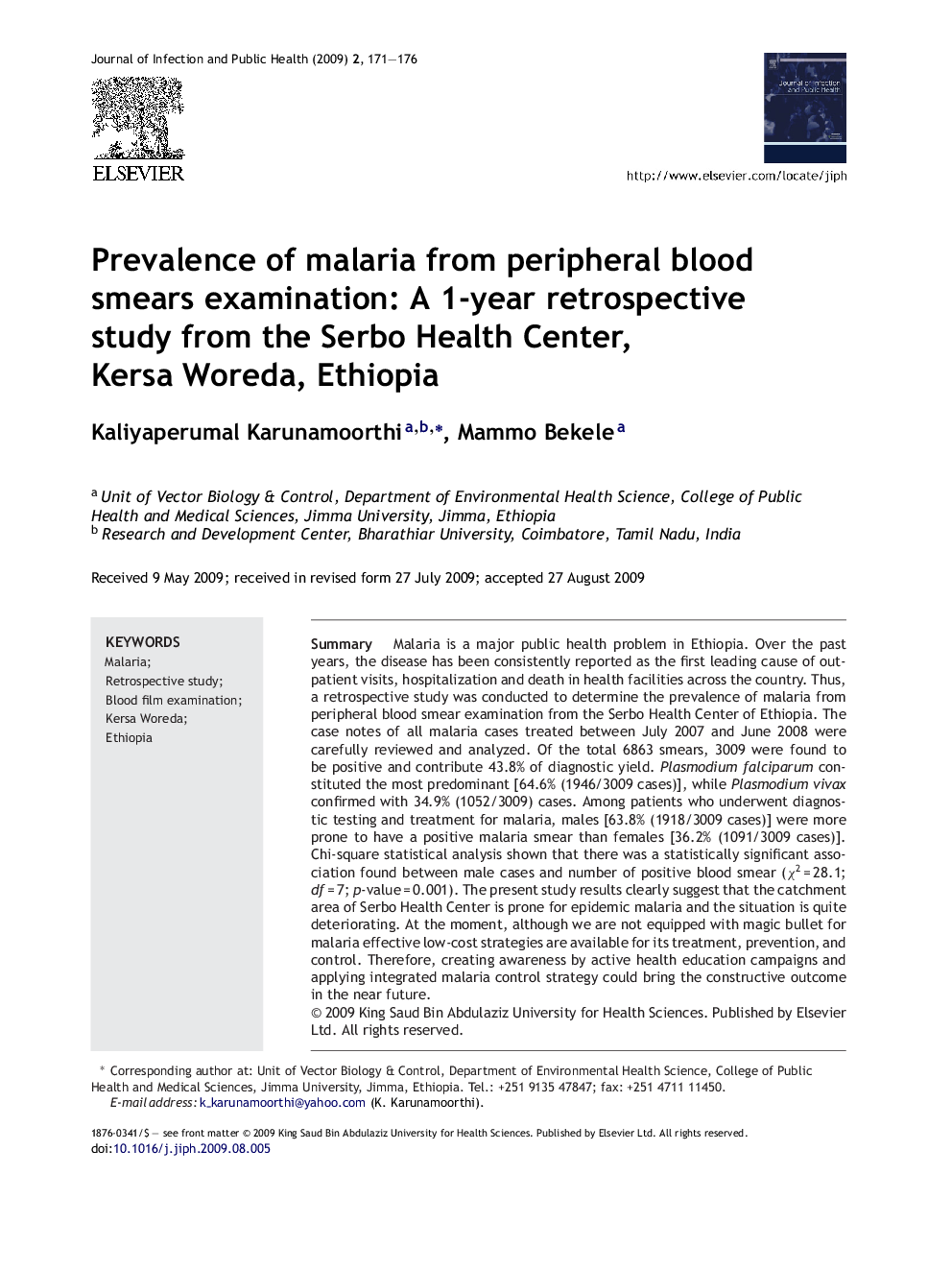| Article ID | Journal | Published Year | Pages | File Type |
|---|---|---|---|---|
| 3406227 | Journal of Infection and Public Health | 2009 | 6 Pages |
SummaryMalaria is a major public health problem in Ethiopia. Over the past years, the disease has been consistently reported as the first leading cause of outpatient visits, hospitalization and death in health facilities across the country. Thus, a retrospective study was conducted to determine the prevalence of malaria from peripheral blood smear examination from the Serbo Health Center of Ethiopia. The case notes of all malaria cases treated between July 2007 and June 2008 were carefully reviewed and analyzed. Of the total 6863 smears, 3009 were found to be positive and contribute 43.8% of diagnostic yield. Plasmodium falciparum constituted the most predominant [64.6% (1946/3009 cases)], while Plasmodium vivax confirmed with 34.9% (1052/3009) cases. Among patients who underwent diagnostic testing and treatment for malaria, males [63.8% (1918/3009 cases)] were more prone to have a positive malaria smear than females [36.2% (1091/3009 cases)]. Chi-square statistical analysis shown that there was a statistically significant association found between male cases and number of positive blood smear (χ2 = 28.1; df = 7; p-value = 0.001). The present study results clearly suggest that the catchment area of Serbo Health Center is prone for epidemic malaria and the situation is quite deteriorating. At the moment, although we are not equipped with magic bullet for malaria effective low-cost strategies are available for its treatment, prevention, and control. Therefore, creating awareness by active health education campaigns and applying integrated malaria control strategy could bring the constructive outcome in the near future.
